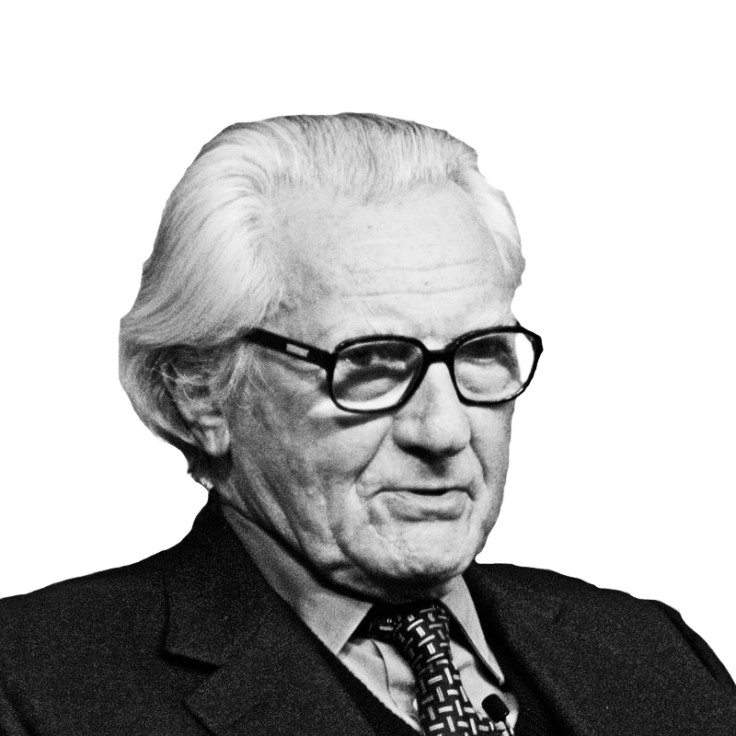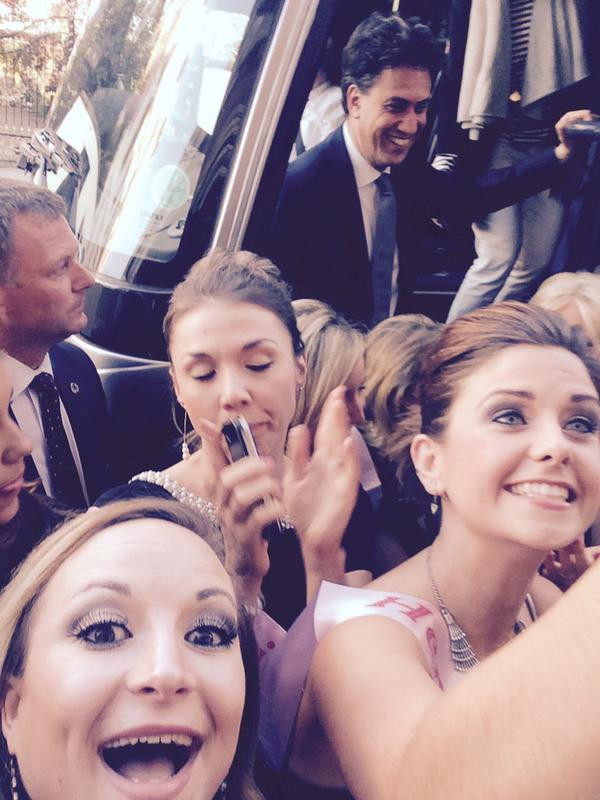Election 2015: Ed Miliband has sexed up his brand but hasn't shed geeky weirdo image yet

There used to be a phenomenon in marketing academia called "dynamic stagnation". This was when companies in certain categories such as soap powder, yellow fats (yeuch – that's marketing speak for butter and margarine) and toilet paper all spent lots of money on marketing and price promotions to fight each other for market share... and ended up precisely nowhere further forward.
It's tempting to view election politics in the same light, and particularly right now. It's supermarket special offer frenzy. Each party is offering what it hopes will be the "killer promotion" to get marginal voters over the line (and get their existing "buyers" – voters - to turn up).
'Get a load of these billions on offer for Right to Buy!'
'Don't like increases in rail fares? We'll freeze 'em!'
'You were angry about the Lib Dem tuition fee U-turn? Here's £3.1bn for cutting tuition fees (even if the evidence is that it won't have the effect you want)!'
'Having a baby? Get a midwife free...'
It's just as well that most election manifesto pledges get quietly forgotten. Not only the detailed policies (which very few normal human beings actually read), but also the titles and slogans, which tend to blend into a future/forward/best for Britain/better tomorrow blah blah blah soup.

'I want competence, determination and a sense of direction in a Prime Minister, not the qualities of a B-movie star.'
Lord Heseltine refutes claims that David Cameron lacks passion. Read the article here
But this has been a rather extraordinary election so far, on just about every level. Not only the media coverage and attention devoted to a much wider range of parties, but also because the political outcome has been made so genuinely uncertain by the phenomenon that is Nicola Sturgeon and the SNP.
Sturgeon looks fresh - but Farage is fading
Who knew that Sturgeon was so clear, engaging (if enraging) and funny? A TV and debating natural, she has found her voice reaching across the border to others who want to change the system of "old Westminster" and the (old) boys' network. In contrast, Nigel Farage has felt like a new product launch that has got lots of trial, looked and sounded good for a while, but is fading now that the established political brands have got their act together on Ukip's protest issues.
Having said all this, the final countdown is now between the two main parties competing for leadership of the UK government. Again. Although obviously between two very different players – more different than in a generation. La-di-da Dave vs Red Ed.
What's interesting is that, for some time, David Cameron has been perceived much more positively than the party he leads, while the opposite has been true for Ed Miliband. Labour has been more popular as a party than its leader.
"I want competence, determination and a sense of direction in a prime minister not the qualities of a B-movie star."
Public perceptions have hardened at both ends of the spectrum. The Conservatives are nasty but competent, Labour nice but economically incontinent. It's all out war for the swing voter in between and here's where both of the main parties are trying to mitigate their weaknesses, and even shape their last-minute pledges around trying to extend their political brands into each other's territories.
The Conservatives make promises on the NHS, and even steal some of Labour's vocabulary on being the party of "working people". Labour cost out its manifesto pledges to show it can add up, and just about hold its nose to talk about business rates (but only for small businesses). It has, though, got a grudging plus for business of all kinds by not promising to hold a referendum on Europe, with all the uncertainty that could cause.
Getting personal
But it's certainly the leadership issue – the personal brand issue – that is making the most noticeable difference. It has indeed become personal. And particularly for Miliband.

His supporters did say that the more people saw of him, the more they would like him. And that's almost true... from a spectacularly low base, though. Until the TV debates and recent TV profiles and documentaries, what people knew about Brand Miliband was driven by his ascent to power (not good), incidents with bacon sandwiches, and an impression of geeky weirdness with voice to match. This contrasted sharply with Cameron's smooth prime ministerial polish, which has been a significant Tory strength for voters.
But lo, see Ed smile. See him with an attractive and intelligent wife. Get a frisson seeing him talk "hell yeah" tough. Follow him on fan tweets. He's learned not to forget his lines, to look as though he could run something involving a smart suit, and to speak with a better, more human tone.
This is improving perceptions, but the Conservatives are still leading on the economy and leadership... even though Cameron has clearly spotted sufficient danger to get out and emote in shirt sleeves, now actually breaking a "bloody" sweat in his campaign speeches.
It remains to be seen whether Miliband can do the full transition from Ugly Duckling to Crown Prince, sufficient to take the net negative ratings into positive. That's a long way to go.
Meanwhile, the Conservatives must be praying that all the "shy Tories" come out of their shell to vote on 7 May, and that Bill Clinton's "It's the economy, stupid" still holds true... although possibly not in the way they imagine.
Otherwise, for both it's the Sturgeon and Boris Johnson treatment respectively. Yes indeed. Oh what a lovely soap war.
Rita Clifton CBE is a former vice chairman of Saatchi & Saatchi and was London CEO and chairman at Interbrand over a 15-year period. She now has a portfolio of directorships, including as chairman and co-founder of BrandCap, the brand consultancy for the boardroom.
© Copyright IBTimes 2025. All rights reserved.






















